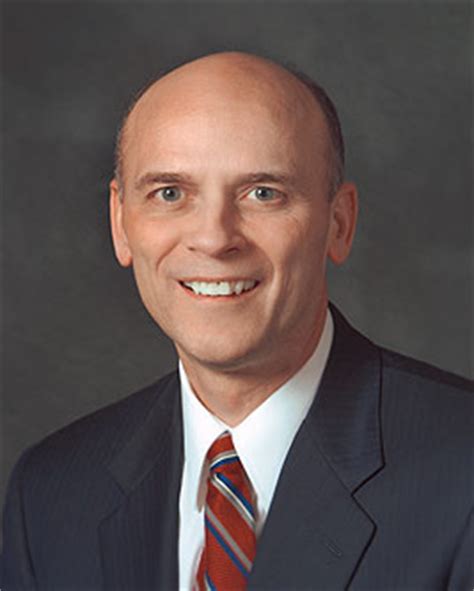A Quote by Charles Spurgeon
I would rather believe a limited atonement that is efficacious for all men for whom it was intended, than a universal atonement that is not efficacious for anybody, except the will of men be added to it.
Related Quotes
The plan of salvation could not be brought about without an atonement... The atoning sacrifice had to be carried out by the sinless Son of God, for fallen man could not atone for his own sins. The Atonement had to be infinite and eternal to cover all men throughout all eternity. Through His suffering and death, the Savior atoned for the sins of all men. His Atonement began in Gethsemane and continued on the cross and culminated with the Resurrection.
Thus, the enabling and strengthening aspect of the Atonement helps us to see and to do and to become good in ways that we could never recognize or accomplish with our limited moral capacity. I testify and witness that the enabling power of the Savior's Atonement is real. Without that strengthening power of the Atonement, I could not stand before you this morning.
I am so profoundly grateful for the gospel of Jesus Christ, for a testimony of the Atonement of the Savior. I believe in it with all my heart, and I live for it, and I bear witness of it this day. Of all of the events of human history, none other approaches the Atonement of the Savior in its meaning and in its results. God be thanked for the gift of His precious Son, to whom we all owe thanks for His sacrifice in our behalf.
The Atonement of Jesus Christ and the healing it offers do much more than provide the opportunity for repentance from sins. The Atonement also gives us the strength to endure "pains and afflictions and temptations of every kind," because our Savior also took upon Him "the pains and the sicknesses of his people" (Alma 7:11). Brothers and sisters, if your faith and prayers and the power of the priesthood do not heal you from an affliction, the power of the Atonement will surely give you the strength to bear the burden.
We really are immortal in the sense that Christ’s Atonement conquers death, both physical and spiritual. And provided we have so lived Today that we have claim on the Atonement’s cleansing grace, we will live forever with God. This life is not so much a time for getting and accumulating as it is a time for giving and becoming. Mortality is the battlefield upon which justice and mercy meet. But they need not meet as adversaries, for they are reconciled in the Atonement of Jesus Christ for all who wisely use Today.
Sometimes we can lose the wood for the trees. Some specific issues dealt with in the book [Saving Calvinism]: the scope of election (who is saved?); the nature of the atonement (do we have to hold to penal substitution if we're Reformed?); the scope of the atonement (for whom did Christ die?); whether we have to hold to some sort of theological determinism (God ordains all that comes to pass).
It is often reported that the Five Points of Calvinism are the conceptual hard-core of Reformed thought. That is very misleading. The Five Points supposedly originate with the Synod of Dort in the early seventeenth century. Yet we find important Reformed leaders who were signatories to that documentation who don't think that limited atonement is the right way to think about the scope of Christ's saving work. How can this be? The answer that recent historical theology has thrown up is that the canons of the Synod don't require adherence to the doctrine of limited atonement.
Sometimes we say we want an end to hate or racism or sexism. But we all participate in keeping these structures alive. If everyone decided to relinquish the past what would happen to people who feel that there hasn't been proper atonement made to them? And what happens to the person who feels that the constant atonement is their identity?


































